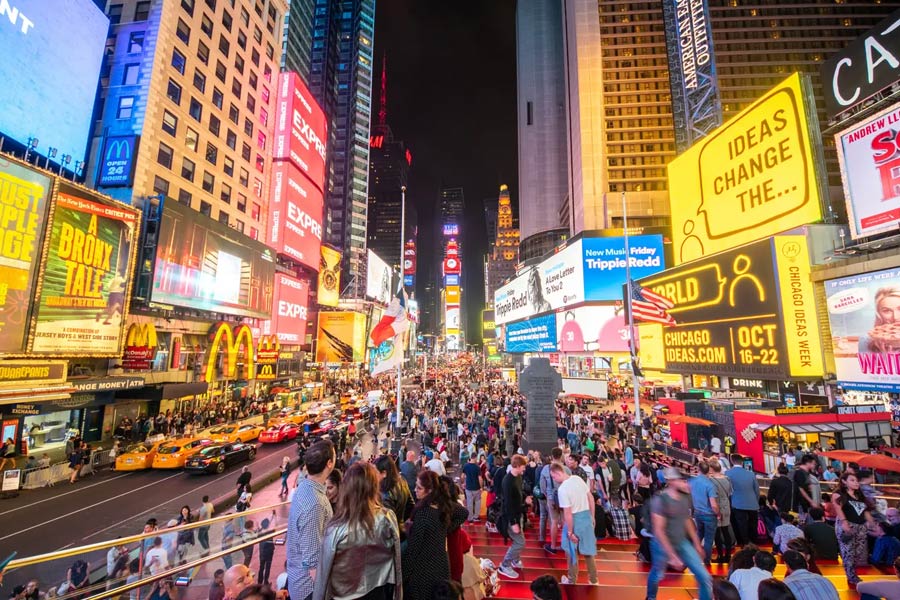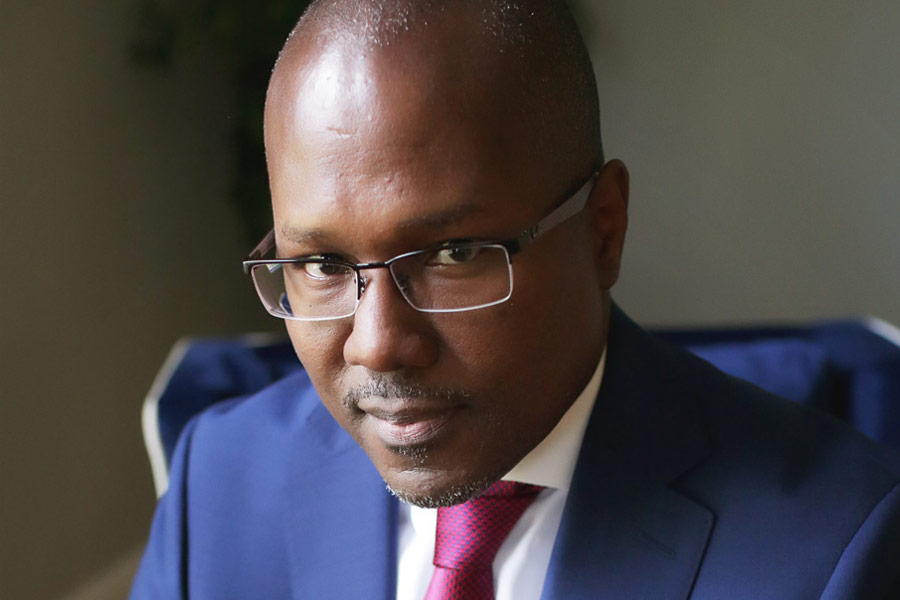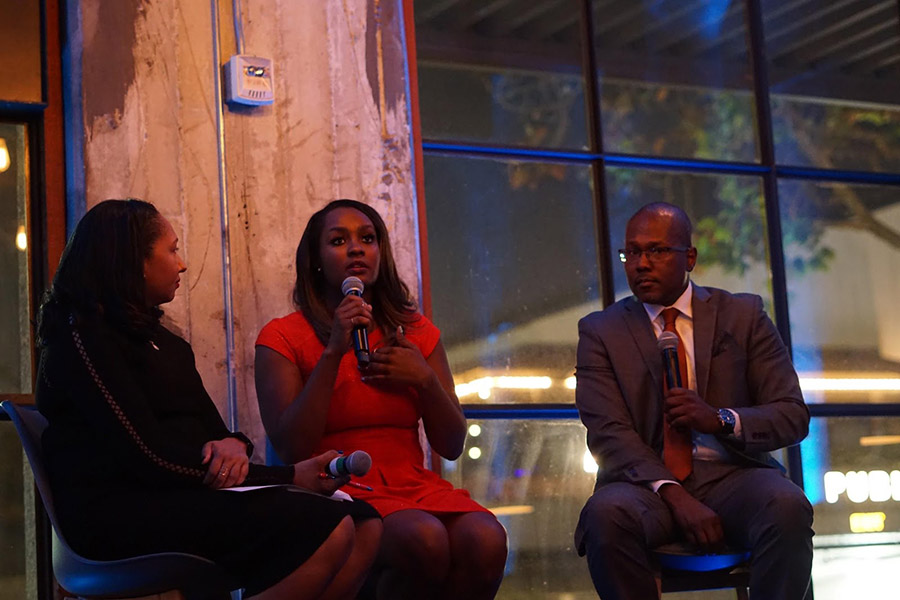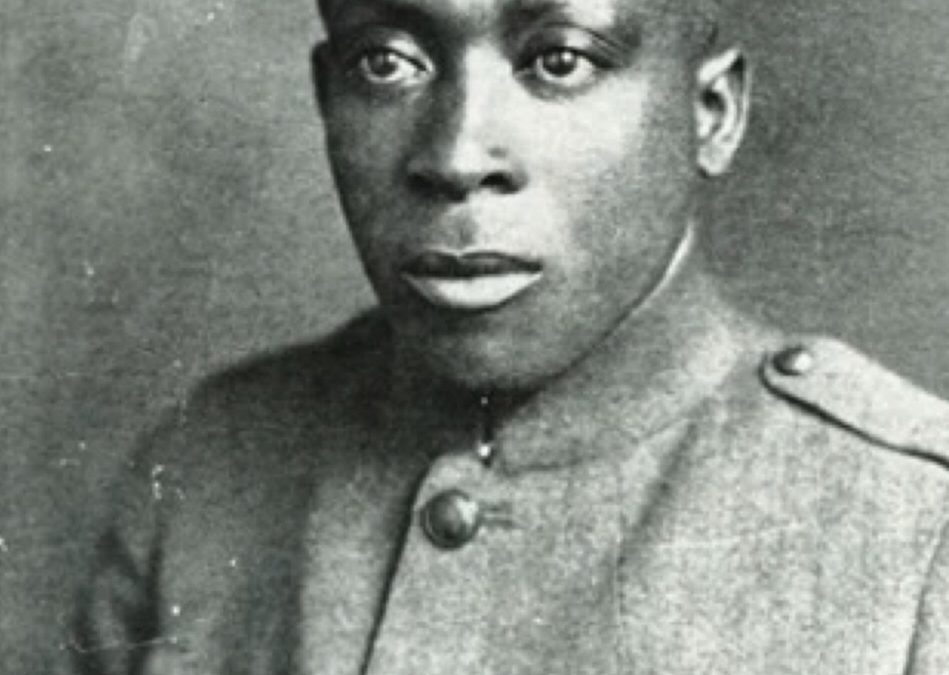Black Americans face a staggering wealth gap. The most recent statistics show that, in 2016, a typical middle-class white family in the US had $149,703 in accumulated wealth, while a middle-class Black family had only $13,024 — meaning Black families have 8.6% of the wealth of white families.
According to Shawn Rochester, author of “The Black Tax: The Cost of Being Black in America,” the cause of this gap can be traced back to slavery.
In his book, Rochester breaks down how racism and discrimination have cost Black Americans trillions of dollars over the course of several generations — $70 trillion, by Rochester’s estimate — and how discrimination has created the massive racial wealth gap that exists today.
The ‘Black Tax’ starts with slavery
Rochester explained to Business Insider that he uses the term “Black Tax” to describe the financial costs of discrimination against Black Americans.
Rochester, a graduate of the University of Chicago Booth School of Business, wrote his book as a way to analyze the research he was reading about discrimination against Black people. He found that most researchers were writing about the morality and injustice of discrimination, but he wanted to connect the dots and examine the financial cost to Black Americans.
The wealth gap between Black and white America was first established through 250 years of unpaid labor. While it’s hard to quantify the exact cost of slave labor, Rochester said economists have estimated anywhere from $24 to $97 trillion of labor was extracted from enslaved Africans from 1619 to 1865, so he uses an average number of $50 trillion in his calculations. And while Black people built this country with free labor, they haven’t been on the receiving end of America’s wealth.
“In terms of the proportional amount of the Black population actually owning part of the economy, that doesn’t exist. That’s just based on the legacy of slavery and colonialism. In the United States, Black people only own about 2% of US wealth,” Rochester said.
Black Americans were denied access to government-sponsored wealth-building tools
For centuries, Black Americans have been left out of government programs designed to help citizens build wealth.
In 1863, Black Americans were denied access to the Homestead Act, which promised 160 acres of land to citizens in exchange for a small fee and five years of cultivating the land. Over 70 years, 1.6 million mostly white homesteaders claimed 270 million acres — about 10% of US land — valued at $1.6 trillion.
Many Black Americans were also excluded from the Social Security Act in 1935 — agricultural and domestic workers were left out of the act — resulting in a $143 billion loss to the community. Through a payroll tax, the Social Security Act provided unemployment benefits and financial benefits to retired workers over 65. And the GI Bill in 1944 — which effectively excluded Black veterans — provided funds for college education, housing, and unemployment insurance, and cost Black Americans another $45 billion.
Black enterprise was never allowed to thrive
Each of these government programs designed to help Americans build wealth was withheld from Black people, causing each generation to fall further behind. But even when Black people have tried to start their own businesses and networks to create wealth, their progress has been blocked or dismantled, often violently.
In the 1920s, Tulsa, Oklahoma was home to the thriving Black community of Greenwood. It was dubbed Black Wall Street because of its Black-owned businesses that included luxury hotels, bars, movie theaters, and clothing stores. But in 1921, a mob of white men, angry over the trial of a Black man who was accused of sexually assaulting a white woman, descended on Greenwood, burning down businesses and killing residents. Millions of dollars of damage was done, and the town never fully recovered.
Rochester said, “Throughout history, we’ve had massive, intentional disruptions in the growth and development of Black businesses. You’ve also had massive deprivation of [Black] customers. When you start talking about post-emancipation and entering the early 1900s to the middle 1900s, you have Black people relegated to the lowest-paying occupations in the country, which has nothing to do with skill or capabilities. So now you starve the customers and resources, and it’s very difficult for businesses to thrive.”
To get to the $70 trillion estimate, Rochester added the trillions lost during the Jim Crow and Civil Rights eras, noting that from the 1870s to 1960s, Black people were racially and economically segregated and excluded from participating in the American economy as equal citizens.
The ‘Black Tax’ today
Today, Rochester says the “Black Tax” is perpetuated by a conscious and unconscious bias against Black people, and it happens in almost every area of life.
Black people face discrimination getting hired, and face a wage gap when they do get hired. A study found that white applicants are 50% more likely to get a callback for a job based on their name alone. In terms of wages, Black employees with a bachelor’s degree earn, on average, $50,108 compared to their white coworkers’ $61,176.
When taking out loans, Black people will often pay more. A University of California Berkeley study found that Black mortgage borrowers pay an average of 0.08% more in interest than white borrowers with comparable credit, which costs borrowers over $760 million more every year.
For Black Americans who are able to own homes, they still face discrimination on the path to building wealth. Abena and Alex Horton, an interracial couple from Jacksonville, Florida had their home appraised for $330,00, surprising the homeowners who live in a mostly white neighborhood where houses are valued between $350,000 and $550,000. When Abena, who is Black, took down all traces of Black art and photos from their home, and left her white husband home alone for the second appraisal, their home appraised for $465,000.
Rochester said, “The data is very clear, and the issue is that we need a new set of actions, but a new set of actions must follow a new set of thinking. The first step is how do you paradigm shift? And that’s the information that’s in the book. I want to help people understand how we got here in the first place. Because if you think this problem is fundamentally the problem of Black people or the Black individual, why would you go out of your way to do anything? So of course you have to have context about how this came to be. And then generally from that context, people start looking for how they can now be part of the solution.”
Rochester’s proposed solution to the racial wealth gap
The solution to the wealth gap, Rochester says, is being intentional about doing business with Black-owned businesses, putting more Black people on payrolls, especially in high-competition fields, and investing capital with Black-owned banks so banks can turn around and lend in a non-discriminatory way.
Gentrification doesn’t have to force minority residents out of their homes. Activists say there are 3 ways to protect communities.
“In the book and in my talks, I talk about this economic framework called PHD, which stands for purchase, hire, and deposit in ways that create and expand business, and provide capital within the Black community. So what I advocate for is actions, plans, and policies that would stimulate job creation and business development.”
Without intervention, the wealth gap will continue to widen. But Rochester wants people to know that while the problem of the Black wealth gap may seem insurmountable, the issue is fixable.
“Others have a historical advantage of preference and availability to capital for hundreds of years. So you can’t compare apples to apples in any way. There’s no silver bullet, and there’s not one action to reverse it. But this can be addressed over time and you can have dramatic change if you have people engaged from an economic standpoint. And then overlay that with policy. The idea is whenever possible and wherever possible, direct your resources to Black enterprise because it creates jobs and attracts capital. And that’s good not only for the Black community, but that’s good for the whole country.”







0 Comments